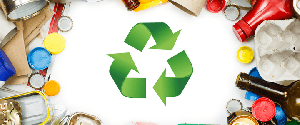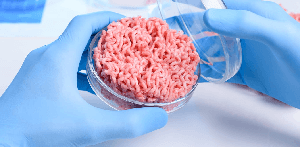There are simple hacks we can employ to be kinder to the planet, from cooking to cleaning, to fashion and finance. We have gathered some tips that can help you lead a more sustainable life.
Kitchen Life
Adults today can spend anywhere from one to three hours in the kitchen per day. There’s plenty to do in the kitchen that will help you live a greener life and also save a few bucks on the way!
Reduce food waste
Begin to love your leftovers. As much as 20% of purchased perishable products end up in the trash bin. Keep track of what’s available in the fridge before you go out shopping for more. Reinvent the way you use food; for example, stale bread can be used to make salad croutons; cooked porridge can be used as part of the ingredients for baking bread!
When out shopping, it is better to get less and shop more often, than jumping into ‘buy 2 and get 3’ offers that can likely lead to unnecessary food waste at home. Keep track of where produce comes from and try to buy locally when possible.
A Cleansing Life
We spend a lot of time and energy cleaning, whether it is our bodies, our homes or clothing. Save the planet, your money and time with some simple tricks.
Wash less often. We need to wash all the time, especially with small children around but oftentimes we put a garment to wash if it has a small stain. Learn to spot clean and air-dry your clothes when possible.
Use biodegradable products. Many of the cleaning and cleansing products we use are quite detrimental to the environment. Start buying products that are as close to 100% biodegradable and make an instant positive impact on the planet!
Less plastic. Our products are not only wrapped or contained in plastic, they often have plastic inside them! Start discovering sustainable products that are wrapped in paper or biodegradable products, and research what is in your product to avoid adding more micro-plastics to the environment.
A Life with Fashion
We won’t tell you to stop shopping, but only to do it more consciously. Here are some tips.
Buy only necessary items. Before buying a new piece of clothing, ask yourself, will I wear this item at least 30 times?
Buy secondhand. Secondhand products can be as good as new and they are cheaper, so you reduce on the production footprint while saving money.
A Life of Finance
Finances can be a drag for many, but saving money while saving the planet can be easily recognized as a win-win situation.
Invest wisely. Instead of a bigger flat-screen TV, how about investing in water-saving devices such as rainwater harvesting or greywater recycling systems? Invest in environmentally-friendly solutions that also lower your monthly bills.
Green money. Ask your bank and pension provider what funds you’re invested in and whether there is a sustainable or ethical option. It’s time to stop investing in fossil-fuels.







